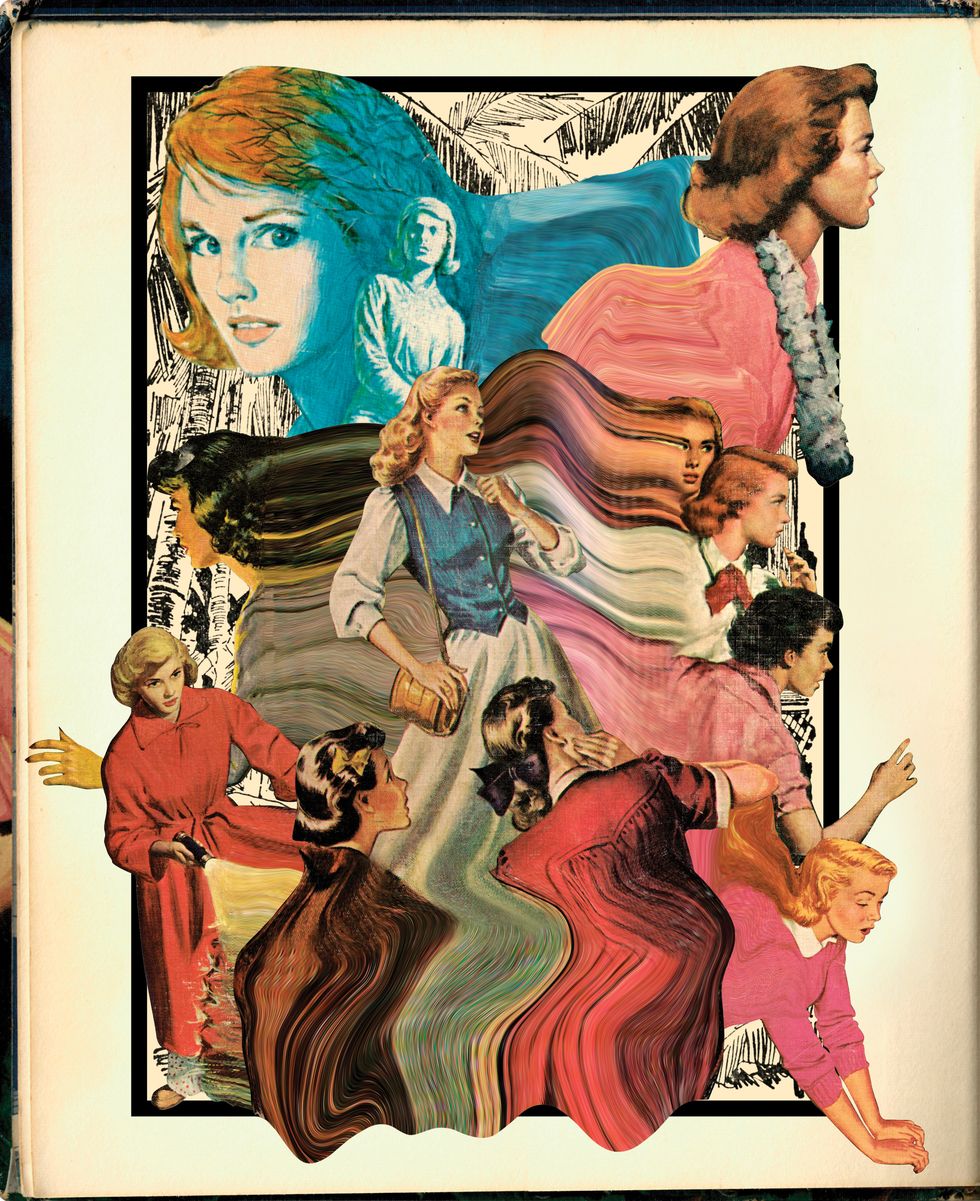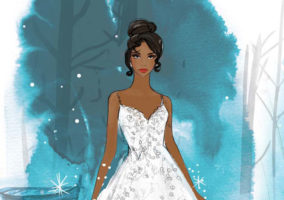
Kittens, before we dash off to a weekend of pumpkin carving and leaf-raking, we feel compelled to do our duty and leave you with some entertainment to tide you over. These are all the posts, articles and essays that caught our eyes this week.
When she made her literary debut in 1930, the intrepid teen detective validated the idea that girls could have guts, grit, and game. This month, as the convertible-driving, clue-deciphering, boundary-pushing sleuth lands on the small screen in the CW’s new Nancy Drew series, Michael Callahan makes the case that she was YA’s original badass.
The Timely Return of Nancy Drew by Michael Callahan at Marie Claire
Why are we so obsessed?
Alexandria Ocasio-Cortez and the Political Cost of Hair by Vanessa Friedman at The New York Times
The actress talks about juggling “Sorry For Your Loss” with the Marvel juggernaut, while dreaming up her next great adventures.
Elizabeth Olsen on Grief, the Scarlet Witch and Her Next Life by Kathryn Shattuck at The New York Times
The comedian offers candid advice on getting what you want out of life in an exclusive excerpt from her new memoir Dear Girls.
Ali Wong Would Appreciate It If You Never Asked Her This Again by Ali Wong at ELLE
In her 85 years of life, Lee Bouvier Radziwill was many things. She was an American style icon. She was a socialite. She was an actress and an interior decorator, each for a brief time. She was American royalty, as the younger sister of First Lady . And she even became actual royalty, acquiring a princess title after marrying a Polish prince in 1959.
Hundreds of Lee Radziwill’s Belongings Are Being Auctioned Right Now, Including a Bracelet She Once Gave Jackie Kennedy as a Gift by Samantha Simon at InStyle/p>
“…before coming out, I’d felt like I’d never truly been myself, almost as if I’d been sleepwalking through life. This profoundly affected my mental health, and though I’ll always deal with depression, the intensity of my suicidal ideation has lessened greatly since coming out.”
On Coming Out, Slow and Not Always Steady: 6 Stories by Emma Specter at Vogue
These US-based activists know firsthand the impact racism, poverty, and colonialism have had on the planet.
Meet the young activists of color who are leading the charge against climate disaster by Nylah Burton at Vox
Noah Oppenheim, a Today show and NBC News executive to whom Farrow reported, shruggingly tells Farrow that during the 2016 election, women in NBC’s news team had reported sexual harassment by a Trump campaign official on the trail but weren’t eager to come forward publicly. Oppenheim, Farrow discovers, has been shrugging off abuses of gender and power for a long time; as an undergraduate, he wrote anti-feminist screeds for the Harvard Crimson. “To the angry feminists,” read one, “there is nothing wrong with single-sex institutions,” arguing for men’s clubs and noting that “women who feel threatened by the clubs’ environments should seek tamer pastures. However, apparently women enjoy being confined, pumped full of alcohol and preyed upon” — a prescient description of what Brooke Nevils says happened to her in Lauer’s hotel room. “They feel desired, not demeaned,” Oppenheim wrote as a student.
Ronan Farrow Depicts a Chilling Cover-up at NBC by Rebecca Traister at The Cut
Such an airbrushed image of Garland will feel familiar to anyone who’s loved The Wizard of Oz and A Star is Born and who, perhaps, knows little about the backstage drama that dominated the star’s life. But diehard fans (good and bad alike) will recognize how much the film goes out of its way to mollify Garland’s own personality, especially in the 1960s. If, like me, you’ve gone out of your way to learn everything there is to know about Judy (not just the whispered stories about her or the bite-sized trivia that litter her Wikipedia page) you know there’s more to the anxious insomniac the film depicts. To watch footage from Garland’s last decade or to hear the expletive-laden recordings she made when working on her memoir is to get a glimpse of a performer who was broken in a truly ugly way. To see her try and get through late night appearances (with Cavett or Carson, say) is cringe-inducing; she’s manic and unfocused, clearly trying her best to look put together even as she’s spiraling.
“Judy” Is What Happens When a Film Loves Its Subject Too Much by Manuel Betancourt at Electric Literature
[Photo Illustration: Susanna Hayward/Marie Claire Magazine]
Friday Leftovers for the Week of October 6th, 2019 Next Post:
RuPaul’s Drag Race UK: The Royal Queens
Please review our Community Guidelines before posting a comment. Thank you!



